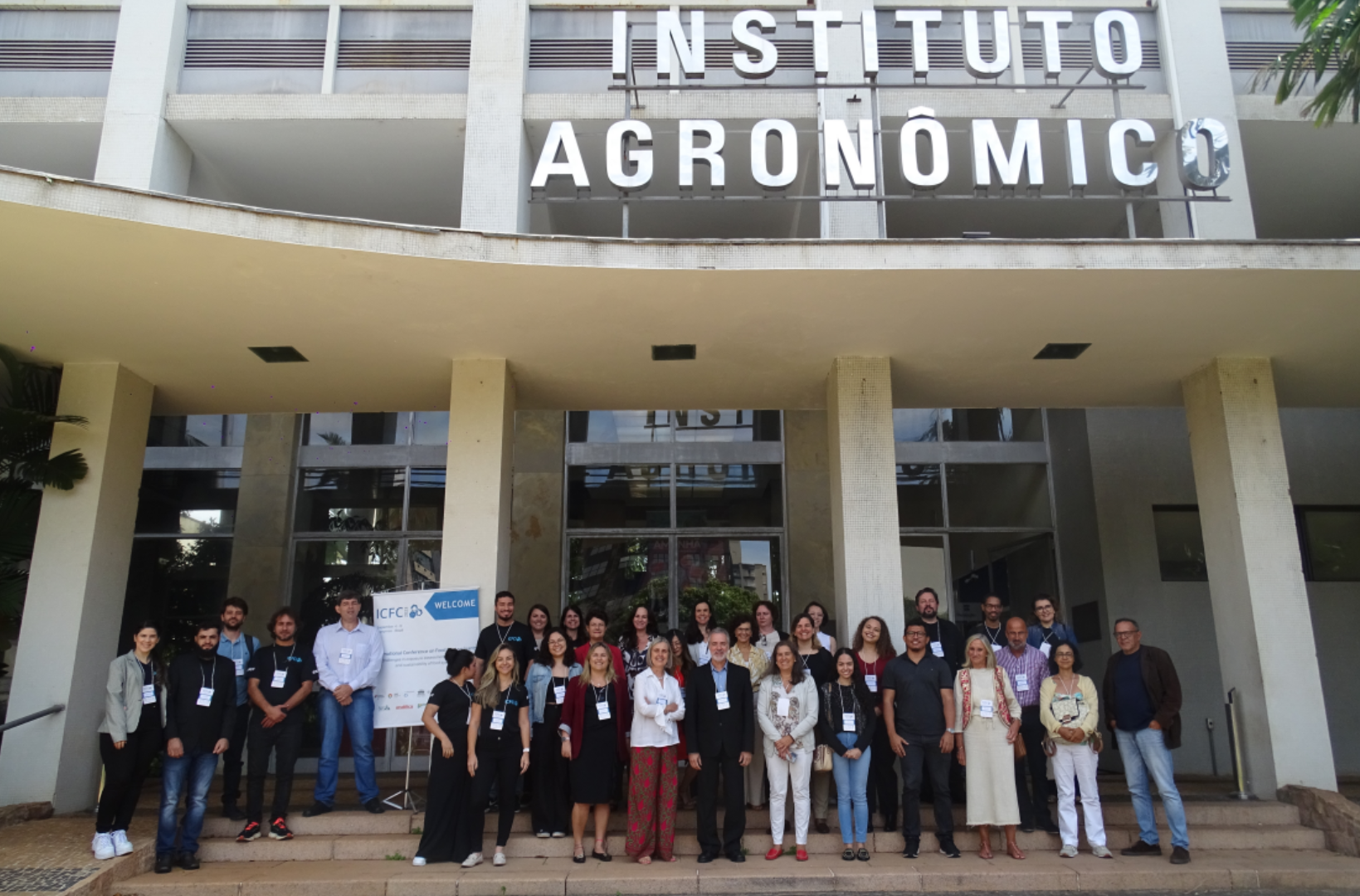Between September 4 and 6, 2023, the “5th International Conference on Food Contaminants: Challenges on exposure assessment, health impact, and sustainability of food systems” (ICFC 2023) took place at the Agronomic Institute of Campinas, Campinas, Brazil. This event was organized by INSA and held in a hybrid format, in partnership with CESAM, the University of Aveiro, and the Faculty of Animal Science and Food Engineering of the University of São Paulo, with the support of FAPESP and SCBTA.
For the first time, the event was held outside Portugal, with the theme “Let’s Open Horizons,” aiming to strengthen the ties between Portugal and Brazil in the field of food safety and human health. ICFC2023 featured four sessions that included topics such as contaminant occurrence, exposure assessment and health impact, sustainability of food systems, and collaborative networks and their impact on society. These sessions included a plenary lecture by the European Food Safety Authority (EFSA) on the subject, nine presentations by invited speakers from Europe and Brazil, 17 oral communications by participants, and two round tables with three brief communications each. Approximately one hundred participants from 12 countries in Europe, Latin America, and Africa attended the event, and 57 posters were presented, with the best poster being awarded.
CESAM actively collaborated in the conference with the involvement of various members, including MI Paula Alvito as the chair; Amadeu Soares, who was invited for the opening session; Diogo Cardoso, who presented “Environmental Circularity: Agriculture, Waste Management, Insects” in person; Marcia Braz with the online presentation “Effect of bacteriophages against biofilms of Escherichia coli on food handling surfaces”; Prof. Artur Alves as a member of the organizing and scientific committee; and Prof. Susana Loureiro, part of the Scientific Committee. Additionally, four posters were presented by CESAM researchers.
The five key messages from ICFC2023 emphasized the importance and necessity of i) conducting more studies on human exposure risk assessment to multiple contaminants; ii) increasing knowledge about the toxicity of emerging marine biotoxins, which currently have limited scientific knowledge; iii) reinforcing the development of research on new sources of proteins (including insects), as well as waste reuse and their food safety, which are essential for the sustainability of food production systems; iv) disseminating and promoting access to databases to enhance knowledge about human exposure assessment to contaminants; and v) expanding horizons and integrating scientific knowledge through international cooperation between various continents, such as Europe (Portugal) and America (Brazil), with different experiences, aiming to promote a more effective response to the challenges posed by climate change.
Text by: Paula Alvito
